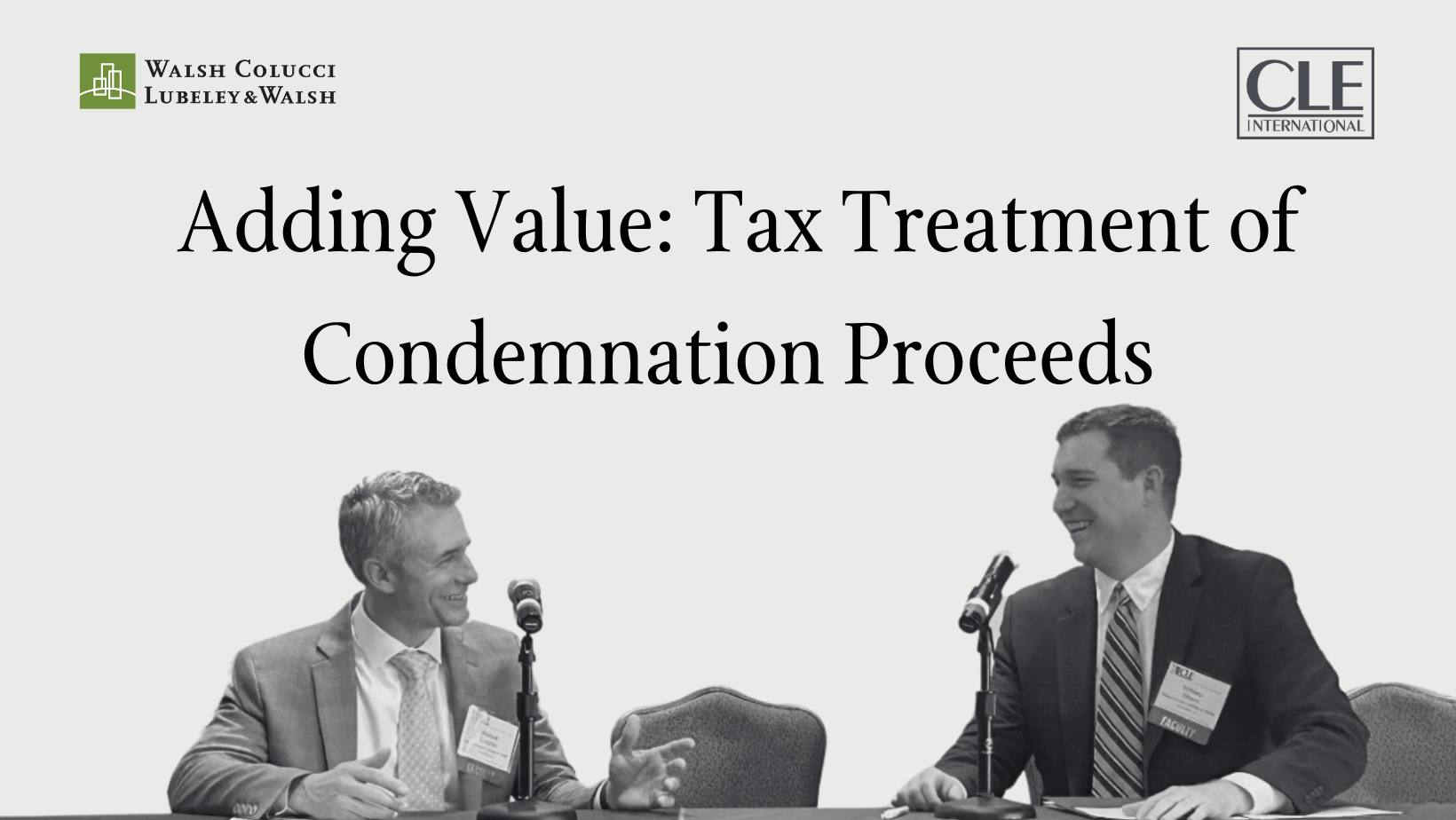
Michael Coughlin, with the firm’s Eminent Domain Practice Group, and Will Gibson with the firm’s Trust, Estates and Tax practices, presented Adding Value: Tax Treatment of Condemnation Proceeds at the 17th annual Virginia Eminent Domain Conference presented by CLE International. In this presentation, Michael and Will discussed the nuances and options for clients with respect to deferral of capital gains tax resulting from receipt of condemnation proceeds. Internal Revenue Code Section 1033 is a unique and often underutilized section that allows recipients of condemnation proceeds to reinvest the money received and defer capital gains tax—it is similar in nature to the often used section 1031 exchange, but its guidelines are more favorable to the taxpayer. Will walked attendees through the process of electing a deferral, what qualifies for deferral and the basics of what eminent domain attorneys should know so they can offer informed advice to their clients. Michael presented multiple examples of how knowledge of the exchange process can be a great addition to the service provided to a landowner facing condemnation. He further provided examples of situations a real estate investors, owner/operators and homeowners may face, and what tax treatment different elements of just compensation receive.
To round out the presentation, Walsh Colucci Lubeley & Walsh partnered with Alan Lichtenstein with Fortitude Investment Group who provided great insight regarding the use of Delaware Statutory Trusts (DST) for deferral of gain and shared examples of how clients could benefit from the use of a DST for reinvestment. If you are facing a condemnation proceeding and have questions regarding the tax treatment of money received, please contact Michael Coughlin or Will Gibson.






